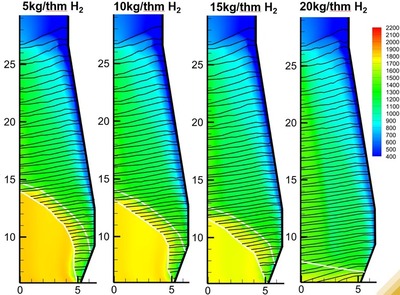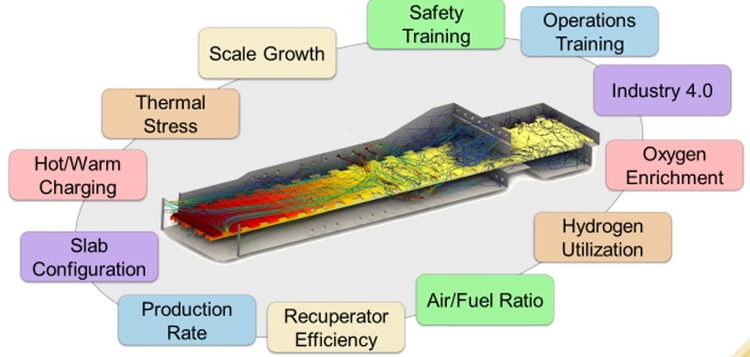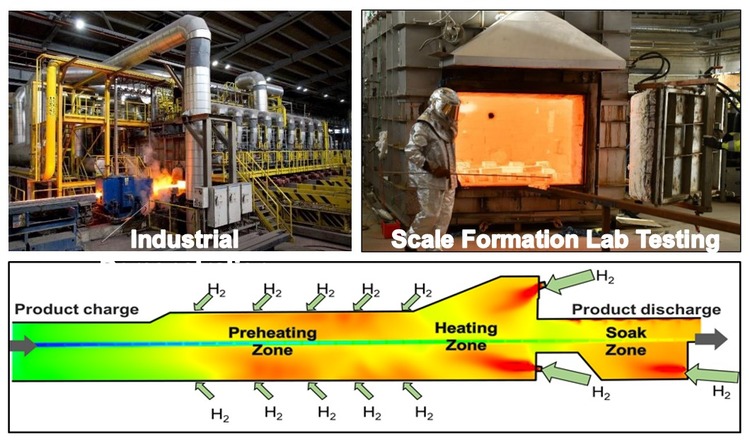CIVS Director Presents Hydrogen Research at International Technical Conference on Clean Energy

On June 18, CIVS Director Chenn Zhou presented “Modeling Hydrogen Utilization for the Blast Furnace and Reheating Furnace” at the 48th International Technical Conference on Clean Energy in Clearwater, Florida. Co-authors for the paper include CIVS Senior Research Engineer Nicholas Walla, CIVS Associate Director for Research Tyamo Okosun, CIVS Graduate Research Assistant Samuel Nielson, CIVS Graduate student Misbahuddin Syed, CIVS Graduate student Abhishek Kolakotla, and CIVS Associate Director for Operations Armin Silaen.
The global push for decarbonization of industry emissions targets nearly every sector of the modern materials and manufacturing sectors. Within these, steel production is one of the major focus areas given both the critical nature of steel and its role in CO2 emissions, contributing nearly 7% of total global CO2 emissions. Approaches to decarbonization include major process changes, switching away from combustion-based systems where-possible (“electrification”), and exploration of alternative fuels such as hydrogen gas. This research presents several computational fluid dynamics (CFD) studies and their findings on the partial or complete replacement of methane with hydrogen as fuel for systems in blast furnace and reheating furnaces. In blast furnace operations, direct co-injection of H2 and natural gas into the raceway is explored to reduce coke consumption and emissions. Raceway temperatures were found to decrease as the H2 rate was increased, primarily due to quenching effects of water vapor reactions with coke. However, blending of 15kg of H2 resulted in a coke rate reduction of 6.3% and nearly 5.5% reduction in CO2 levels. In the steel reheating furnace, the use of air lancing as a way to mitigate NOx production potential from pure-H2 operations was explored, finding that re-directing 17.% of air from the burners to lances could reduce NOx emissions by over 14% at the cost of around 4% lower furnace temperatures. The implementation of regenerative burners as a way to increase fuel efficiency found that both hydrogen and methane fuels benefited similarly from the conversion, with potential dwell-time decrease of 24 minutes needed to hit target temperatures.
Attendees at the conference had representatives from five continents, including: Australia, Brazil, Canada, China, Colombia, Germany, India, Japan, Korea, Norway, Poland, Sweden, and United Arab Emirates.


